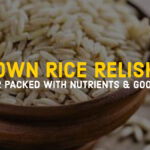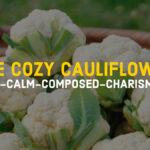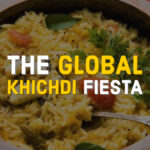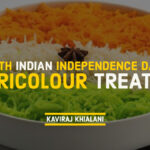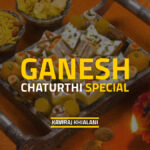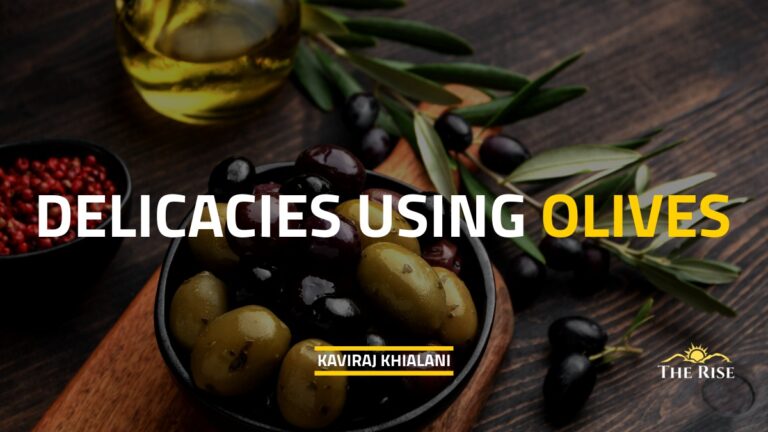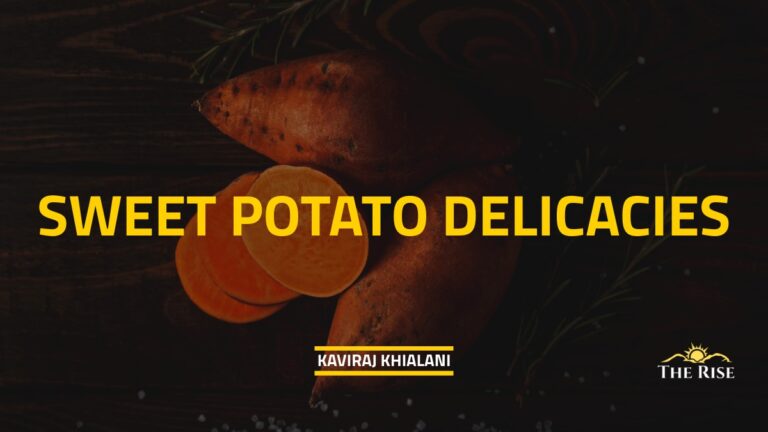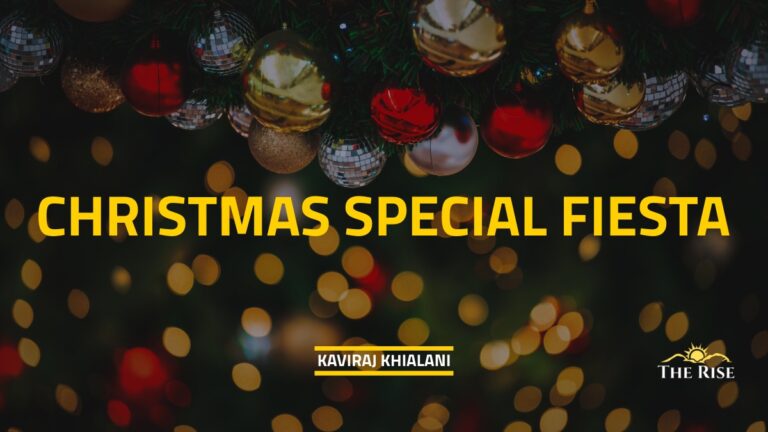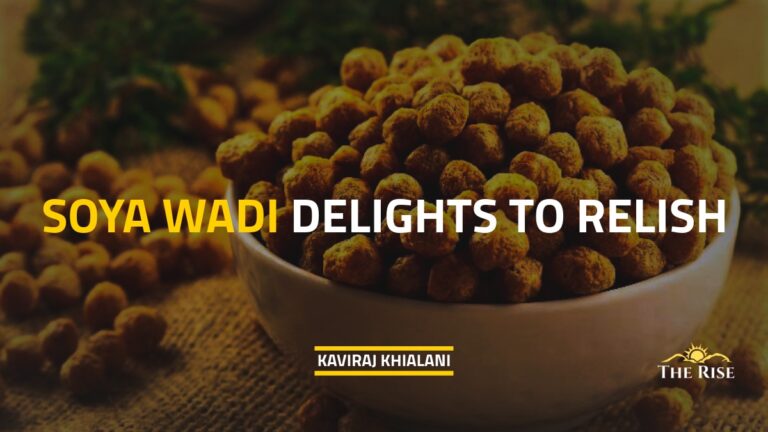SWEET TREATS TO RELISH
Why is Deepavali celebrated?
Deepavali, also known as Diwali, is a significant Hindu festival celebrated for various reasons across India and other parts of the world. One of the main reasons for celebrating Deepavali is to commemorate the victory of light over darkness and good over evil. According to Hindu mythology, it marks the return of Lord Rama to Ayodhya after defeating the demon king Ravana. The people of Ayodhya illuminated the entire city with oil lamps to welcome his return, symbolizing the triumph of righteousness. Additionally, Deepavali is also associated with the goddess of wealth, Goddess Lakshmi. Devotees worship her during this festival to seek her blessings for prosperity and well-being. The festival also holds significance in Jainism and Sikhism, making it a major celebration for people from various religious backgrounds. Overall, Deepavali is a joyous occasion that signifies the victory of light, knowledge, and goodness in the world.
Also Try: STUFFED SHIMLA MIRCH DELIGHTS
What does Deepavali signify?
The festival marks the victory of light over darkness, good over evil, and knowledge over ignorance. It signifies prosperity and wealth, celebrates inner light and self-realization, strengthens family bonds and unity, represents renewal and new beginnings
How is Deepavali celebrated across India?
Deepavali celebrations in India include:
- Decoration: Homes adorned with lamps, rangoli, and flowers.
- Prayers and Pujas: Worship of Goddess Lakshmi and other deities.
- Sweets and Treats: Sharing delicious sweets and special dishes.
- Fireworks: Joyful displays of fireworks and firecrackers.
- Gifts and Shopping: Exchanging gifts, buying new clothes and jewellery.
- Charity: Donations and charitable activities for the less fortunate.
- Cultural Events: Music, dance performances, and traditional plays.
- Community Gatherings: Social and cultural events fostering unity.
- Cleaning: Homes cleaned and renovated for the festive occasion.
Also Try: LOST RECIPES OF INDIA
Importance of Indian sweets during Deepavali
Indian sweets, also known as mithai, hold significant importance during Deepavali for several reasons:
- Symbol of Celebration: Sweets are synonymous with joy and celebration in Indian culture. Sharing sweets during Deepavali symbolizes the festive spirit and the happiness of the occasion.
- Offerings to Deities: Sweets are often offered to deities during prayers and pujas. It is believed that offering sweets to the gods brings blessings and good fortune to the household.
- Expressing Sweetness and Love: Giving sweets to friends, family, and neighbours is a way to express warmth, affection, and good wishes. It strengthens social bonds and fosters a sense of community.
- Cultural Tradition: Deepavali is time when traditional sweets are prepared using age-old recipes passed down through generations. Making these sweets preserves cultural heritage and culinary traditions.
- Auspicious Significance: Sweets are considered auspicious and are offered to guests as a gesture of hospitality. They are often exchanged as gifts, symbolizing the sweetness of relationships and friendships.
- Abundance and Prosperity: The variety and abundance of sweets during Deepavali symbolize prosperity and wealth. It is a way of expressing gratitude for the abundance in one’s life.
6 recipes of Indian sweets and mithai
Recipe 1] Rossogulla
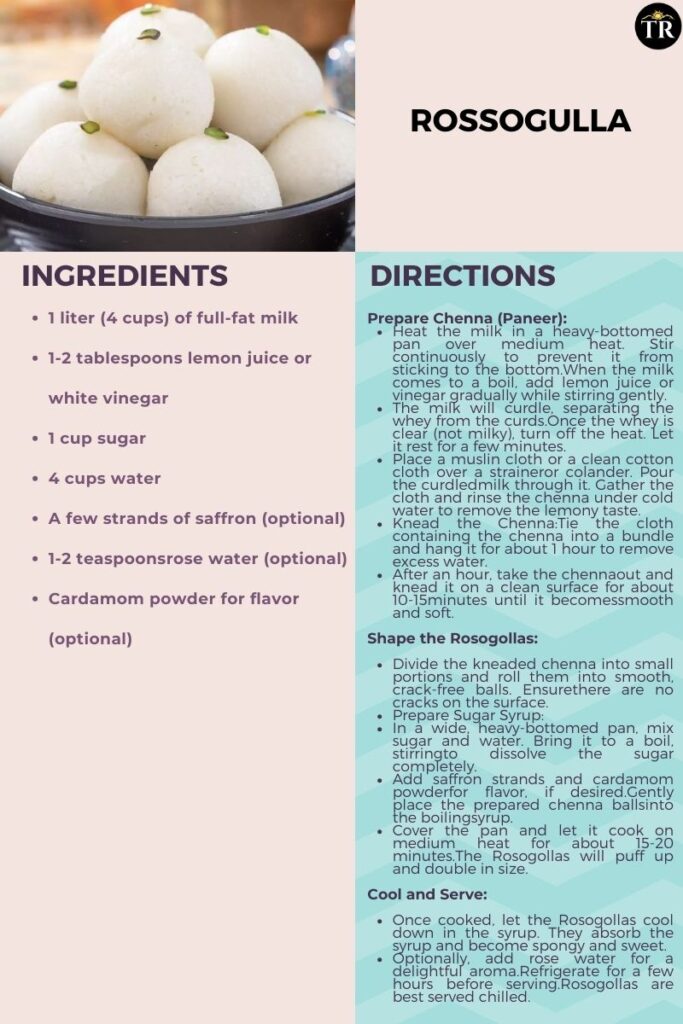
Recipe 2] Mava Peda
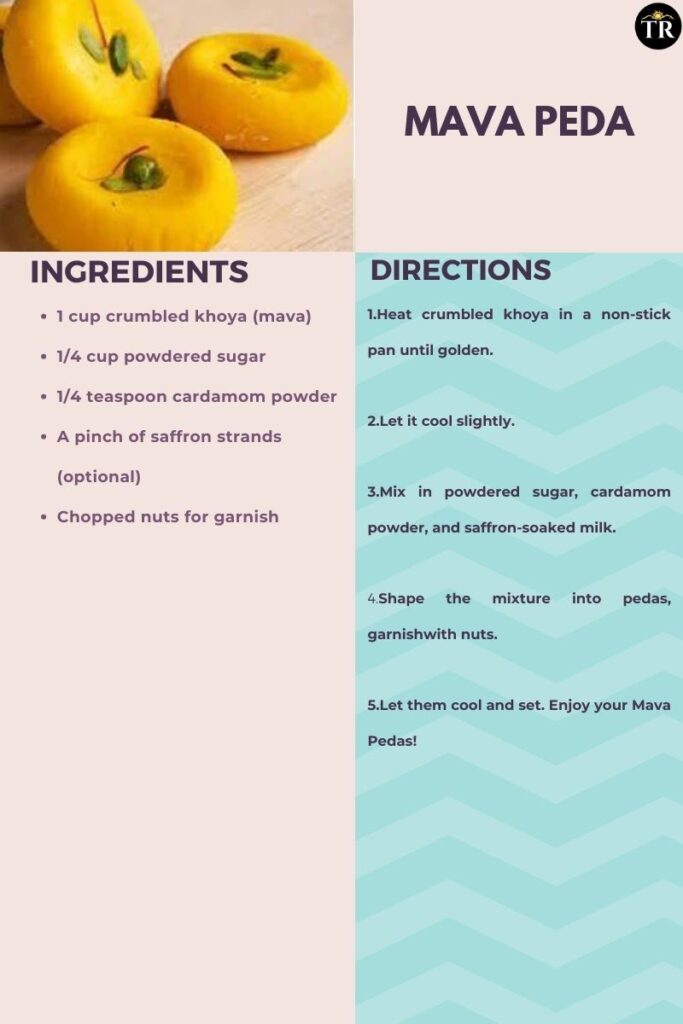
Recipe 3] Ghewar
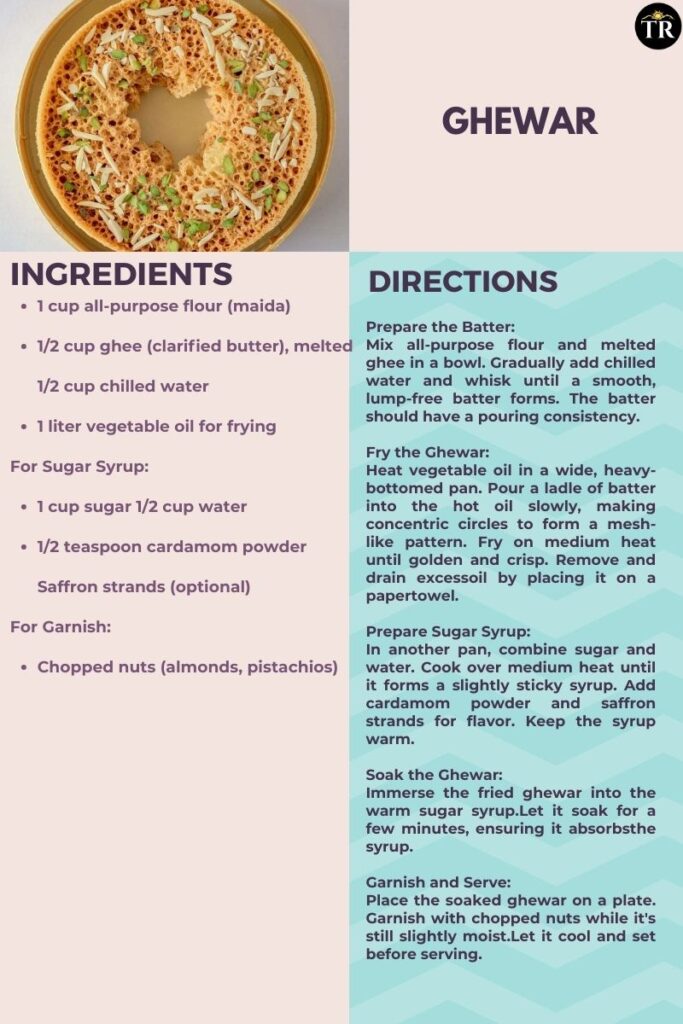
Recipe 4] Karanji
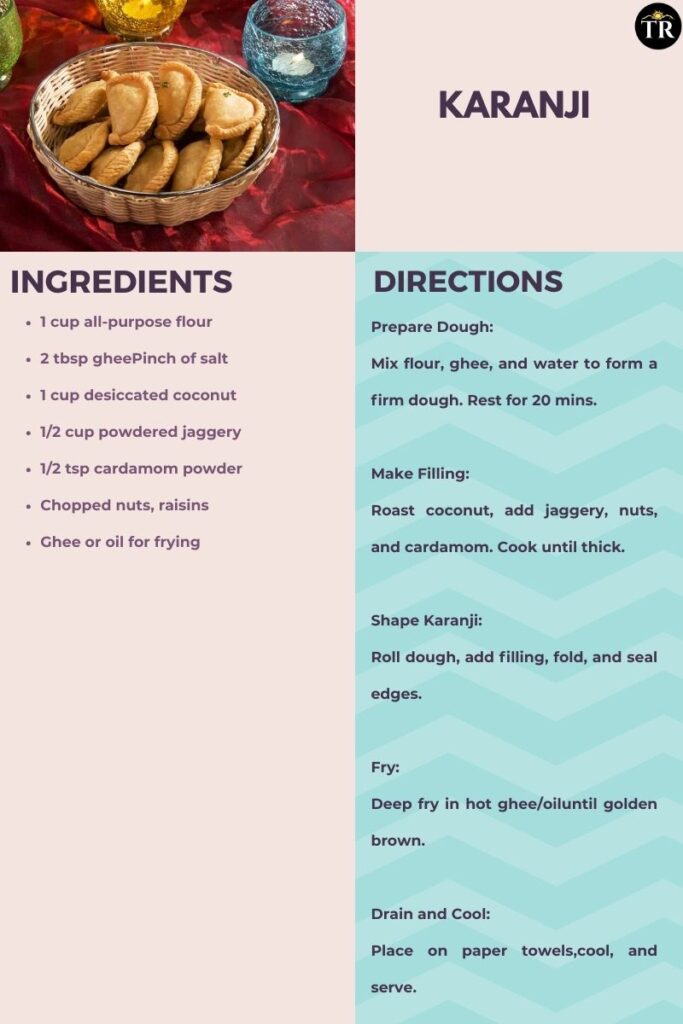
Recipe 5] Kaju katli
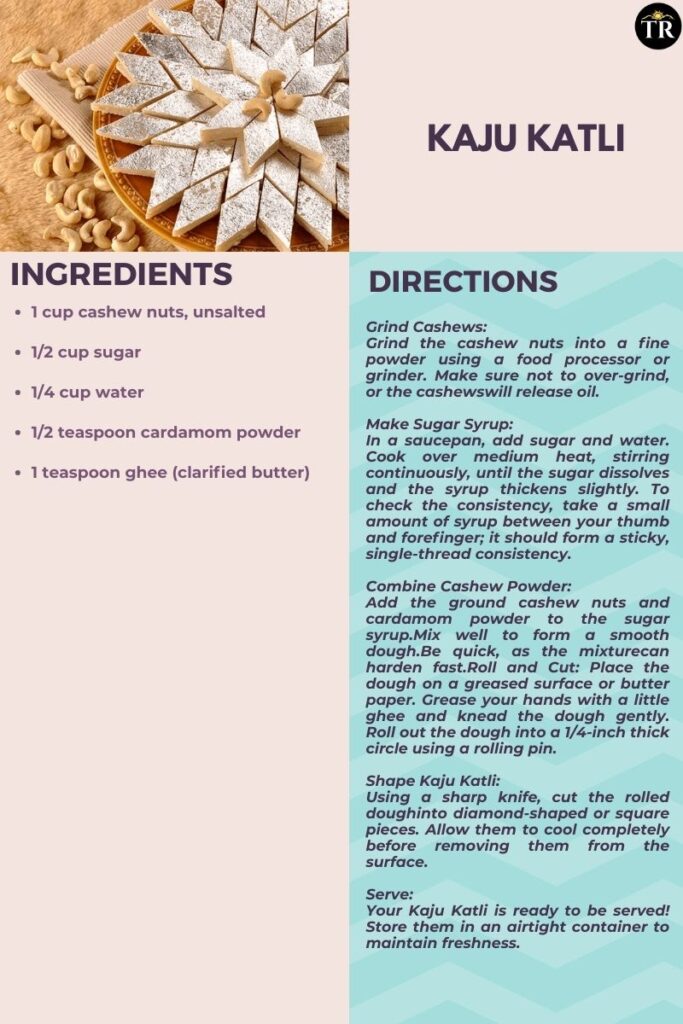
Recipe 6] Dry fruit barfi
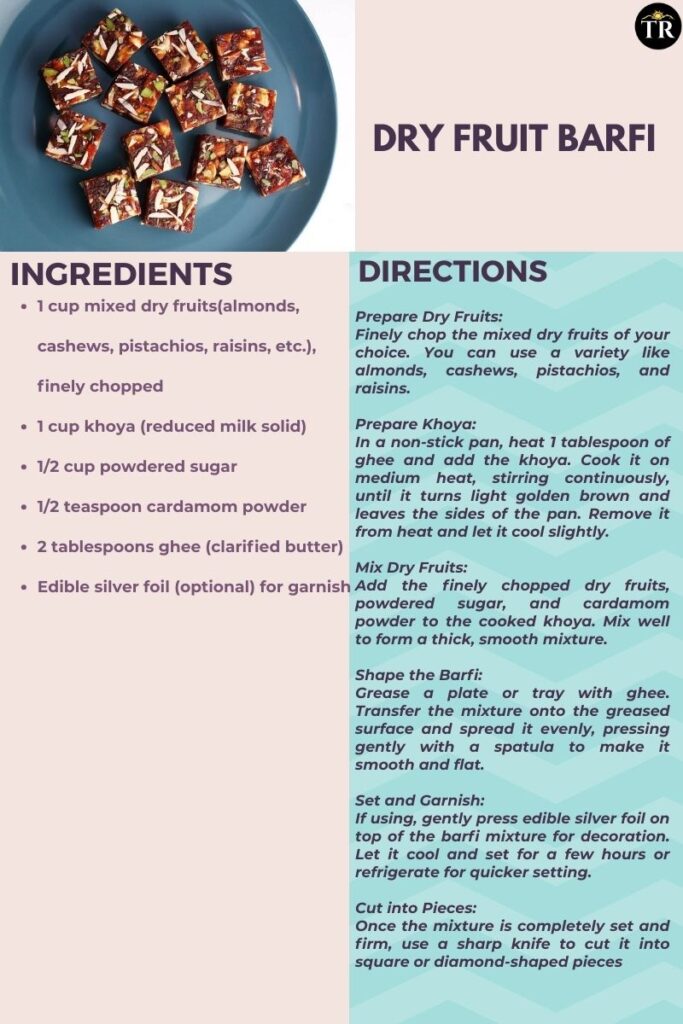
Disclaimer: The views expressed in this article are of the author solely. TheRise.co.in neither endorses nor is responsible for them. Reproducing this content without permission is prohibited.
About the author
Dr. Kaviraj Khialani, celebrity master chef is a Mumbai based food and hospitality consultant. He is specialised in over 33 plus international cuisines & is a two times national award winner for his excellence in his field of expertise. Chef Kaviraj has worked with some of the reputed hotel chains & airline companies in India & Overseas. He is a renowned academician, food designer & author- writer on food and culinary features, besides having been featured on Colors Television & Star plus he loves trying global fusion cooking promoting Indian food on an international platter for the diaspora.



